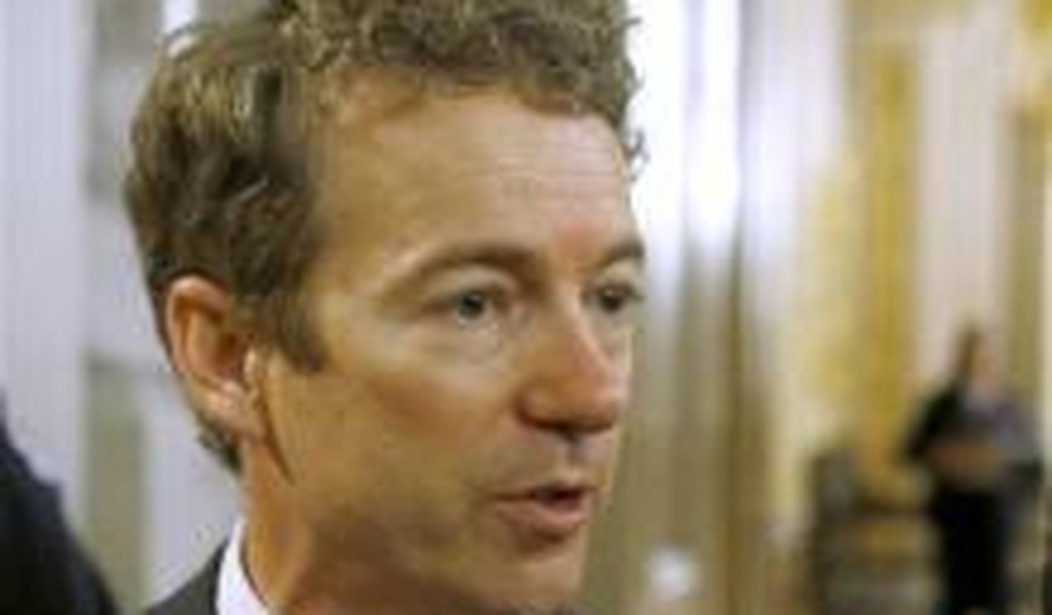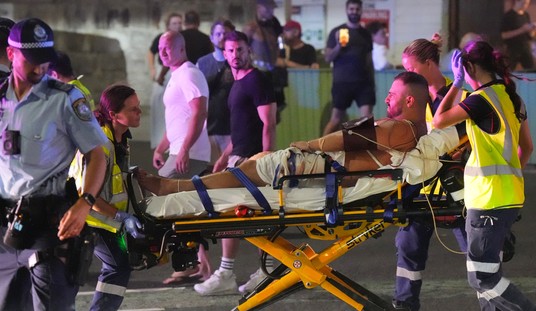WASHINGTON – Sen. Rand Paul (R-Ky.) is leading the GOP push for children to have more choices in schooling by increasing competition in the nation’s education system, all the while boosting his party’s appeal among minority groups.
Paul hosted three fellow Republican senators – Lamar Alexander (Tenn.), Mitch McConnell (Ky.) and Tim Scott (S.C.) – at a school choice forum Tuesday in an attempt to draw support for these initiatives.
School choice proponents argue that families, rather than the government bureaucracies, should decide how their public education dollars are spent and which schools their children attend, be it public, charter, private, online or at home.
Two of the main school choice systems – voucher and charter school programs – allow public education funds to follow the students to their parents’ school of choice. Voucher programs provide scholarships that let students enroll in private schools, while charter schools are privately run and generally have more autonomy from local school bureaucracy.
The lawmakers discussed charter schools and the voucher program with representatives from some of the most successful public charter schools in D.C. – including D.C. Prep and KIPP D.C. – and other schools that educate low-income students through the D.C. school voucher program created by Congress in 2004.
“I’m a big believer that choice is good for kids, that innovation is good for kids, and that we need to be open-minded because there are a lot of things going on in education around our country for decades that has been to the detriment of our kids,” Paul said.
Paul said students, especially minority and poor children, ought to be able to attend any public school in a community, regardless of their neighborhood. He also said that when there is a choice, people tend to choose the better product.
“In our country, capitalism is competition, it’s choice. We get better products and more of them at a cheaper price because we compete for them. I think we should bring some of that excellence on the marketplace into education,” Paul said.
Kevin Chavous, a national school choice leader, said the real challenge in terms of the traditional education leadership and their steadfast opposition came down to “politics and power.”
Chavous singled out the political influence of educators and administrators at traditional schools as a major barrier for school choice programs. He also blamed the “one-size-fits-all” school system that is used to handling the power of teacher unions.
According to the U.S. Census Bureau, the average high school dropout earns an annual income of $20,241. That is roughly $10,000 less than the typical high school graduate and $36,424 less than someone with a bachelor’s degree.
Unemployment among those without a high school degree was 11 percent in June, while unemployment among high school graduates was 6 percent. The national unemployment rate stood at 7.6 percent.
“A lot of the problems we have are related to education, and a lot of unemployment comes from a lack of education,” Paul said.
Alexander briefly mentioned his proposal to update the No Child Left Behind (NCLB) Act, a federal education law that expired in 2007. The proposed legislation contains a provision allowing individual states to decide whether to let parents use federal Title I dollars, reserved for low-income students, for any charter or public school of their choice. Alexander and Paul teamed up on a budget amendment earlier this year that would have allowed Title I dollars to follow students to the school of their choice, including private schools.
Last week, the House of Representatives passed a rewrite of the NCLB law with all Democrats and 12 Republicans voting no.
Charter schools and voucher programs have been the subject of some negative publicity lately. For instance, a Washington Post investigation found that the federally funded voucher program is subject to few quality and oversight controls in D.C.
Despite these issues, Alexander said that forcing students to attend failing public schools is cruel and coercive.
On Monday, Paul and Alexander visited a KIPP public charter school in Nashville. KIPP is a nonprofit network of public schools serving low-income students around the country. There are 3,600 students enrolled in the D.C. KIPP schools.
At the event in Nashville, Paul voiced his support for more vouchers, so that students can use tax money to enroll in private schools. The senator argued that parents participating in the voucher program are not using government money, but instead “they’re just getting back some of the money taken from them.”
“I’m talking about opening up all of the lines, so that kids can go to public, to private, wherever,” Paul said. “Some of these schools are absolutely pitiful, absolutely. What I’m really proposing is helping these kids get out from the grind.”
President Obama and Democrats oppose vouchers, saying that public money should not be used for private schools.
“The president has the money to [send his two daughters] to Sidwell Friends,” Paul said in an interview last week, referring to the private school the president’s daughters attend in the District. “It’s unfair to tell a poor inner-city kid that he can’t choose to go to a suburban school. Preferably, the more choices, the better.”
In a recent op-ed, the senators argued that school choice is an important part of the solution to the problems affecting the nation’s education system.
“We have a system in which politicians and bureaucrats have too much control, parents have too little, and students’ needs get lost in the shuffle. Big Government, even at its best, is inherently inefficient, and too easily distracted from core missions by special interests,” the senators wrote. “Every decision made by bureaucrats in Washington is a decision taken from the people who actually educate – principals, teachers, and especially parents. And as usual, those most vulnerable to the unintended consequences of bad education policy are those most vulnerable, period – the poor, the disconnected, and most of all, their children.”
The school choice forum fits into a larger effort by Paul, a potential 2016 presidential candidate, to win over minority voters. Parents and students, all of them minorities involved in the school choice programs in D.C., also participated in the forum. The students explained how receiving vouchers to attend a school of their choice and winning lotteries to obtain a coveted place in a charter school changed their lives.
Alexander, who sits with Paul on the Senate Education Committee, gave the Kentucky senator credit for his efforts in making school choice a policy priority.
“Rand attracts a lot of attention wherever he goes these days, and I’m glad he is attracting attention on charter schools and school choice,” Alexander said. “Rand has emerged as our most effective advocate for freedom for teachers.”









Join the conversation as a VIP Member